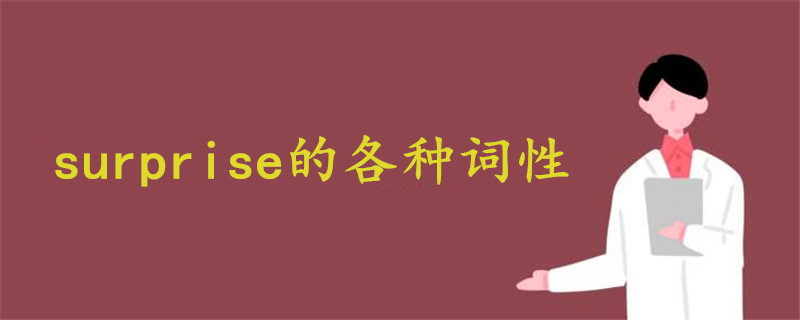surprise的各种词性:surprise可作名词、及物动词和形容词三种词性。surprise的基本含义为“惊喜”、“意外”、“出人意表的做事方式”、“使诧异”、“使措手不及”、“无意中发现”、“令人惊奇的”。

surprise的中文意思及用法介绍
1、当surprise作为名词时,意为惊喜;惊讶;惊奇;意外;意想不到(或突然)的事;令人惊奇的事(或消息等);出人意表的做事方式;出奇制胜的策略。
例句:There are few surprises in this year's budget.
今年的预算案没有多少出人意料的地方。
He gasped with surprise at her strength.
发现她有这么大的力气,他大吃一惊。
A successful campaign should have an element of surprise .
成功的宣传活动需有出奇制胜之处。
I have a surprise for you: We are moving to Switzerland!...
我有一个惊喜的消息要告诉你:我们要搬去瑞士了!
The Foreign Office in London has expressed surprise at these allegations...
位于伦敦的英国外交部对这些说法表示惊讶。
2、当surprise作为及物动词时,意为使惊奇;使诧异;使感到意外;出其不意地攻击;使措手不及;无意中发现。
例句:It wouldn't surprise me if they got married soon.
即使他们很快就结婚,我也不会感到意外。
The army attacked at night to surprise the rebels.
军队在夜间发起攻击,把叛乱者打了个措手不及。
We'll solve the case ourselves and surprise everyone...
我们要自己解决这件事,然后让所有人感到吃惊。
Surprise a new neighbour with one of your favourite home-made dishes.
做一道拿手的家常小菜,给你的新邻居一个惊喜。
3、当surprise作为形容词时,意为出乎意料的;令人惊奇的。
例句:I'm surprised that you of all people should say that.
所有人当中你竟然那么说,真让我吃惊!
It was the best possible surprise anyone could have given me.
那是我曾感受过的最大惊喜。
They were surprised to find that he'd already left.
他们惊奇地发现他已经走了。
I must admit I was surprised it cost so little.
我得承认,这么便宜,真让我惊讶。










